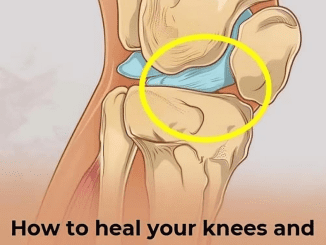Fasting has become a hot topic in recent years, with numerous health enthusiasts and experts weighing in on its potential benefits. However, there’s still a lot of confusion surrounding what actually happens to your body when you skip meals or go without food for an extended period. Contrary to what many believe, fasting doesn’t slow down your metabolism or make you lethargic. In fact, Dr. Jason Fung, a renowned advocate of intermittent fasting, explains that the effects of fasting might be the exact opposite of what you expect. Let’s explore how fasting can impact your energy levels, metabolism, and overall health.
Fasting Increases Energy, Not Fatigue

One of the most common misconceptions about fasting is that it will slow down your metabolism, leading to fatigue and sluggishness. Many people assume that if you don’t eat, your body will conserve energy by reducing your metabolic rate. However, Dr. Jason Fung argues that the opposite is true. When you stop eating, your body doesn’t just sit idle; it starts to burn stored calories for energy.
“When you fast, your insulin levels drop, and other hormones like growth hormone and cortisol increase, which actually boosts your energy levels,” Dr. Fung explains. This hormonal shift not only keeps your energy levels stable but can even enhance them, giving you a sense of alertness and vitality. So, rather than making you feel tired, fasting could actually leave you feeling more energized.
Fasting and the Fight-or-Flight Response
During periods of fasting, your body enters a state that’s often compared to the fight-or-flight response. This heightened state of alertness is a survival mechanism, designed to help you stay sharp and focused when food is scarce. Dr. Fung puts it this way: “Hungry animals are more dangerous because their bodies are in a state of activation, ready to find food.”
This physiological response is driven by increased levels of cortisol and growth hormone, which work together to help your body efficiently utilize stored energy. This means that during fasting, rather than slowing down, your body becomes more efficient at burning fat and maintaining energy levels, all while keeping you alert and ready to face challenges.
Health Benefits Beyond Weight Loss
While fasting is often associated with weight loss, its benefits extend far beyond shedding a few pounds. Research from Cambridge University has shown that fasting can significantly reduce harmful inflammation in the body. This effect is linked to the increased levels of a key fatty acid called arachidonic acid during a 24-hour fast.
Professor Clare Bryant of the University of Cambridge explains, “Our work adds to the growing evidence that calorie restriction has broad health benefits.” Reducing inflammation is crucial because chronic inflammation is a risk factor for many serious diseases, including Alzheimer’s, Parkinson’s, and cardiovascular disease. By lowering inflammation, fasting may help reduce the risk of these conditions, offering a protective effect that goes well beyond weight management.
Fasting and Brain Health
The benefits of fasting aren’t limited to physical health; they also extend to your brain. By reducing inflammation and boosting levels of beneficial fatty acids like arachidonic acid, fasting may help protect against neurodegenerative diseases. Conditions like Alzheimer’s and Parkinson’s are closely linked to chronic inflammation and oxidative stress in the brain.
While more research is needed to confirm the long-term effects of fasting on brain health, the emerging science is promising. It suggests that intermittent fasting could be a simple and effective way to support cognitive health and maintain mental clarity as you age.
The Breakfast Debate: To Eat or Not to Eat?

Despite the growing support for fasting, the practice of skipping breakfast remains controversial. While Dr. Fung and other fasting advocates argue that skipping breakfast can be part of a healthy routine, not all experts agree. Nutrition therapist Justin Nault warns that skipping breakfast might signal underlying metabolic issues. “Eating in the morning helps kickstart your metabolism and prevents unhealthy metabolic adaptations,” Nault argues.
Similarly, the NHS advises against skipping breakfast, emphasizing its importance for overall health. They argue that a nutritious breakfast provides essential nutrients and energy to start the day, potentially preventing overeating later on.
Should You Try Fasting?

If you’re considering trying intermittent fasting, it’s essential to approach it with care. While fasting can offer numerous health benefits, it’s not suitable for everyone. Factors like your current health status, medical history, and lifestyle should all be considered before making any significant changes to your diet.
“Don’t just change your lifestyle because someone on the internet said so,” advises Dr. Fung. Consulting with a healthcare professional can help you understand how fasting might affect your body and whether it’s the right choice for you. With the right guidance, fasting can be a powerful tool for improving your health and well-being.
Conclusion: Rethinking Fasting and Its Impact on Your Body
Fasting is often misunderstood, but as Dr. Jason Fung and other experts reveal, the effects of going without food can be surprising. Rather than slowing down your metabolism or making you feel tired, fasting can increase your energy levels, reduce inflammation, and even protect your brain as you age. However, like any health practice, it’s essential to approach fasting with care and consult with a healthcare professional to ensure it’s right for you. By understanding the science behind fasting, you can make informed decisions that support your health and help you achieve your wellness goals.


